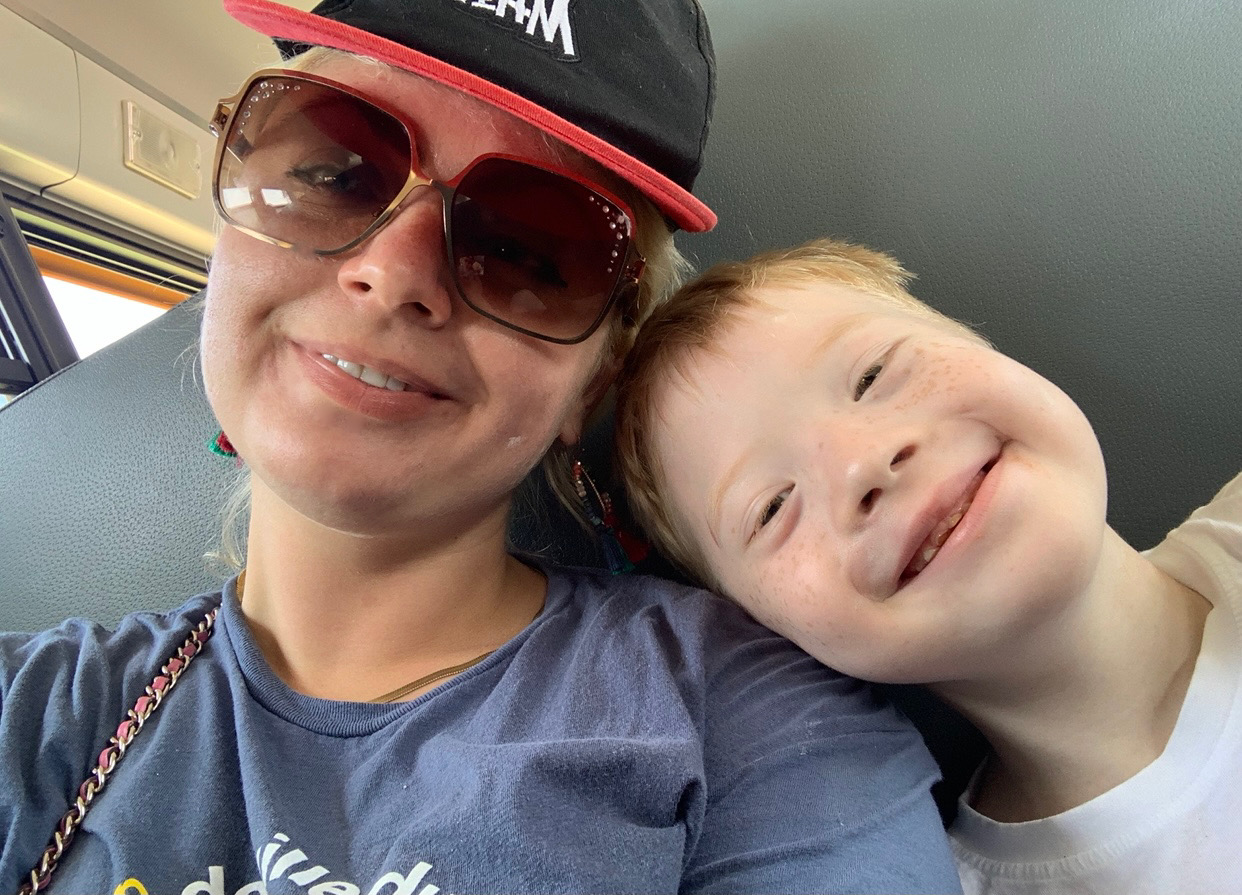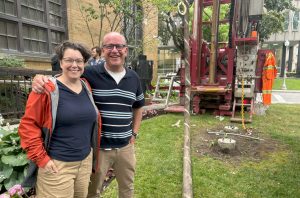Coming home from her shift at a dollar store, physically exhausted, Vlada Bronz wondered whether she had made the right decision in settling in Montreal and not staying in Romania where she had fled soon after Russia’s invasion of Ukraine.
Trained as a lawyer and an experienced teacher of English as a second language, Bronz and her then 8-year-old daughter made the perilous drive from Odesa to Romania 10 days after the war started on Feb. 24, 2022. The vital Black Sea port was the target of a deadly airstrike on that first day, and would be attacked repeatedly.
While it provided sanctuary, Romania was not an easy place to live. Bronz did not know the language and her professional qualifications were not recognized. Besides, she said, “I never dreamed of emigrating from Ukraine” where her husband remains to this day.
A best friend from school had settled in Montreal 16 years earlier, so Bronz undertook the lengthy process of obtaining a Canadian visa, although she recalls she had “zero money in my pocket.” In July 2022, she and her daughter arrived in Montreal, having bought their tickets with money borrowed from her friend.
Bronz went to a shopping mall and handed out her resume to every store. The dollar store was the first to respond. “It was exceptionally difficult,” she said. “I had to get up at 5 in the morning. I walked my daughter 20 minutes to school and back, then went to work… I would return home with my legs aching and cry.”
Bronz was so discouraged she bought two tickets back to Romania that autumn, then changed her mind when she heard the situation was not good there, forfeiting the thousand dollars she could ill afford to waste.
She gave Montreal another chance, went on welfare and racked up debt. Growing more desperate, she acted on a suggestion to turn to the Jewish community.
“I Googled ‘Jewish community’ and ‘Montreal’ and the first thing that came up was (Agence) Ometz,” a Jewish human services agency that offers social, employment and immigration assistance.
“I immediately liked the atmosphere there; I felt secure, the people were nice and open,” Bronz said.
While taking integration classes, she volunteered at Café Zera, a food-services program based at the federation that trains and employs young adults with intellectual challenges.
“It was the first time I had ever worked with people with special needs, and it was a very good experience,” she said. “I have always loved working with children as I did in Ukraine teaching them.”
At her caseworker’s suggestion, Bronz trained and was certified as an aide to disabled children.
This summer, she was hired by the Sylvan Adams YM-YWHA to work at a day camp for children with special needs, thrilling enough, but all the more so because she was assigned to shadow David, a nine-year-old with Down syndrome, who had just settled in Montreal with his family from Ukraine.
“Vlada was the best gift from Ometz to us,” said David’s mother, Victoria Gavasheli, who arrived this March, with her husband and their daughter. They, like Bronz, are Ometz clients.
“With her professionalism, she gave us time to arrange our lives and to go to French courses,” said Gavasheli. “From the moment that we gave her David until the time when we picked him up we were absolutely sure that David was in reliable hands and we could devote those hours to solving our problems. We knew that David was absolutely happy in the camp and everything was under control with Vlada. David developed in many ways.”
Rachel Morgenstern-Clarren, Ometz’s senior communications and stewardship officer, commented, “Going from being a client to being able to give back to other clients through her new profession was a beautiful full circle moment for Vlada.”
Before the war, Gavasheli and her Georgian husband never imagined they would leave Ukraine. She had a good career in the hospitality industry, and he ran several food-services businesses.
“We were not rich, but we were OK. We had property, we travelled,” said Gavasheli, who fled from Kyiv to Poland soon after the war began. Caring for David, who also has diabetes and other health issues, made that three-day journey all the more harrowing.
In Poland, they lived in a monastery, always thinking they would return home soon. As the months dragged on, they thought of looking in Germany or Scandinavia for a haven.
But a friend of hers living in Israel suggested they inquire with the president of Federation’s Russian division about their chances in Montreal.
That president, Mikhael Goldshtein, told the couple, “You will not be alone here. Montreal has a strong Jewish community.” The Gavashelis were assisted by Ometz from their arrival.
Victoria is especially grateful to the community for enrolling her kids in Jewish camps. “They were like a psychological retreat for both children after all the stress they went through. They were running to the camp in the morning…Eliso (her daughter) made many new friends and studied many English words. Every day was a new page in their lives.”
The couple express their appreciation to all in the community who have donated to Ukrainian refugee relief, and “to everyone who helped us by their actions or encourage or good pieces of advice,” she said.
It is not known how many of the estimated 10,000 Ukrainian refugees who have come to Quebec since the war are Jewish. However, Ometz has helped over 250 Ukrainian Jewish refugees since the war began, said Morgenstern-Clarren.
Although they are rebuilding their lives, Bronz and Gavasheli are uncertain about their future here and are living one day at a time. But Bronz, now that her summer job at the camp is finished, is eagerly awaiting the outcome of an interview with a school board and hopes for permanent employment.
In addition to finding a meaningful career path, Bronz no longer feels alone. She has found a friend in Victoria.
Before that she says, “I avoided contact with other Ukrainian refugees; it was too painful talking about what happened, it would give me anxiety.”







